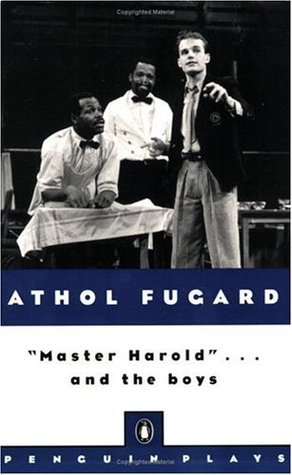What do you think?
Rate this book


60 pages, Paperback
First published January 1, 1982


You don't know all of what you've just done... Master Harold. It's not just that you've made me feel dirtier than I've ever been in my life... I mean, how do I wash off yours and your father's filth?... I've also failed. A long time ago I promised myself I was going to try and do something, but you've just showed me... Master Harold... that I've failed.